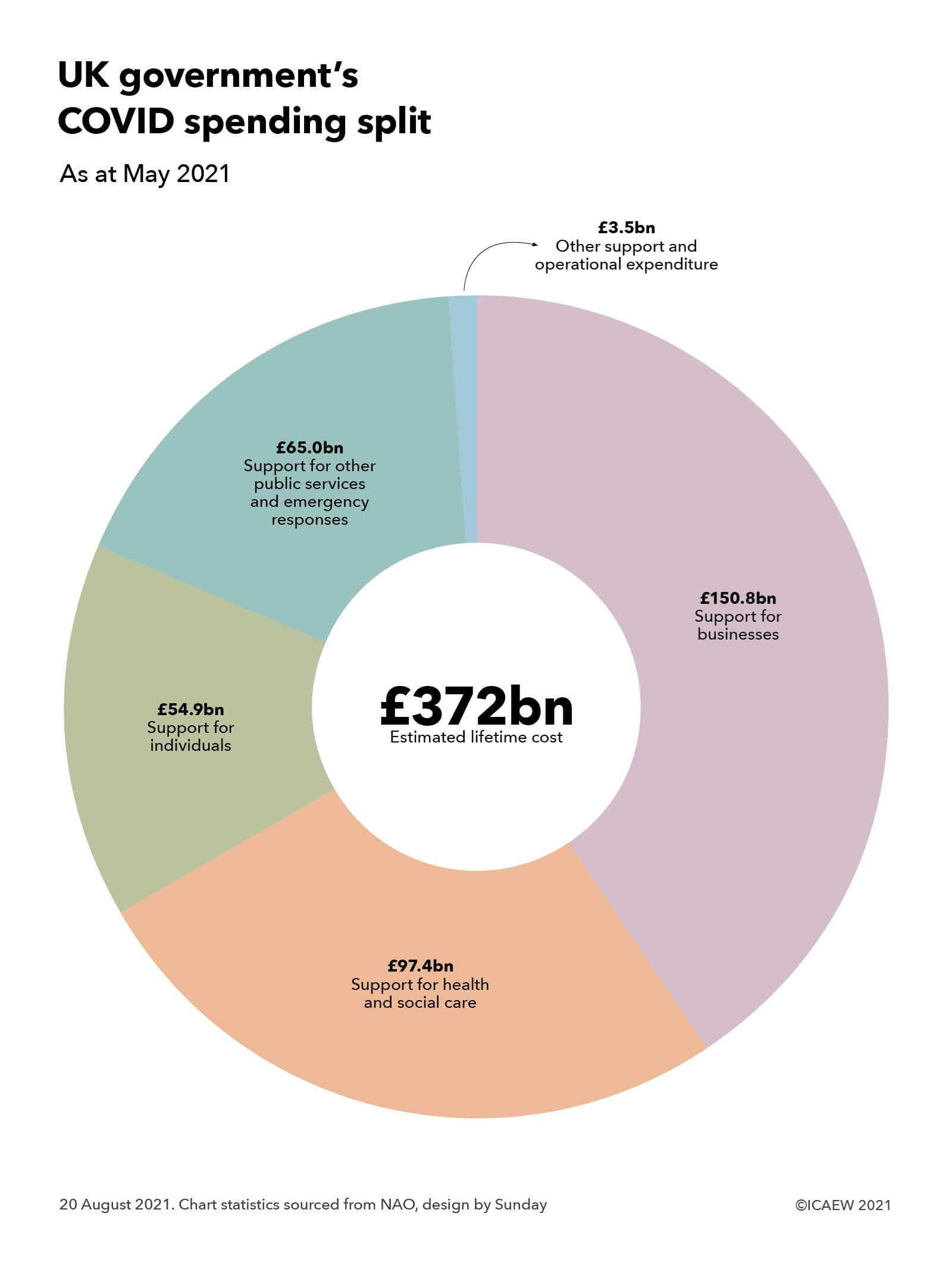
Our chart this week shows what the UK government is expected to spend on COVID-19 as at May 2021 (based on the estimated lifetime cost) according to the most recent National Audit Office COVID-19 cost tracker data.
It reports that the government expects to spend £372bn on COVID-19 measures comprising of: £150.8bn for support for businesses, £97.4bn for health and social care, £54.9bn for support for individuals, £65bn for public services and emergency responses, £3.5bn for operational costs.
The aim of the tracker is to increase transparency, and promote scrutiny and parliamentary accountability for government spending.
ICAEW’s account
“The government’s response to coronavirus involved the design and roll-out at speed of large-scale interventions under huge pressure and at a vast cost of an estimated £372bn”, said Alison Ring, ICAEW Director, Public Sector.
“However, it is clear that the NAO believes that the UK was underprepared for a high-impact low-likelihood event like the pandemic, and the lack of detailed plans in key areas hampered the government’s response.”
Ring believes that ideally the government should set out a clear long-term fiscal strategy with a vision for tackling the challenges now facing the public finances. After all, the fundamental issues are already known.
Fundamental issues to deal with
“More people are living for longer, driving higher spending on pensions, health and social care. There are proportionately fewer individuals of working age contributing through their tax contributions.”
She continued: “Substantial investment is needed to deliver zero carbon. Public services are under significant pressure. Public sector liabilities are growing and the government has trillions more in unfunded financial commitments.”
According to the tracker, from the total cost estimate of measures for which government departments are responsible (£372bn), the tracker states that £92bn of this sum has been loaned or guaranteed by the Bank of England or government so far. Whereas £172bn has already been spent.
Ring concluded: “Lessons need to be learned so that there is strong risk management, transparent decision making, strengthened monitoring of how programmes are operating, greater accountability and effective coordination and communication between government departments should such a pandemic occur in the future.”
NAO’s COVID-19 cost tracker is an interactive tool that brings together data from across the UK government. It provides estimates of the cost of measures announced in response to the coronavirus pandemic and how much the government has spent on these measures so far (where this information is publicly available or has been provided to us by government departments).


